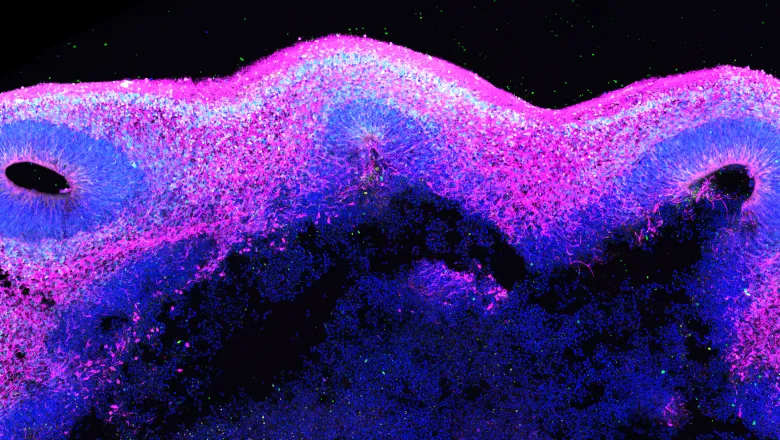Professor Oscar Marín and Professor Deepak Srivastava co-lead the research cluster Functional Genomics of Human Brain Development

The Medical Research Council (MRC) and the Biotechnology and Biological Sciences Research Council (BBSRC) have committed £28.5 million to establish the Human Functional Genomics Initiative programme. It aims to advance our understanding of how genomic variation influences human physiology and how it changes over time and in diseases.
Professors Marín and Srivastava, from the School of Neuroscience, will co-lead a group of investigators in one of the four research clusters under this initiative. The Functional Genomics of Human Brain Development cluster is established to decipher how gene variation influences brain development and contributes to human disease.
We are grateful to be a part of the Human Functional Genomics Initiative. Our work looks at neurodevelopmental conditions such as autism, attention deficit hyperactivity disorder (ADHD), epilepsy, and intellectual disability in children. These conditions are highly complex and recent advances have shown that genetics play a crucial role, but we still need to understand how specific gene variations disrupt the development of the human brain and lead to alterations that affect individuals' lives."
Professor Oscar Marín, Professor of Neuroscience and Director of Centre for Developmental Neurobiology and MRC Centre for Neurodevelopmental Disorders at King's
The cluster will use brain organoids, three-dimensional avatars of the human brain grown in the lab, to study the developing brain. These organoids mimic some of the cellular complexity of the human brain better than previous methods, allowing researchers to study how genes influence brain development and function.
Laboratories worldwide develop organoids to study neurodevelopmental conditions, but these brain models vary from one lab to another. Through the Functional Genomics of Human Brain Development cluster, we will create an open platform to ensure they are consistent and reproducible. This is critical in accelerating progress to find ways to help affected children and their families."
Professor Deepak Srivastava, Professor of Molecular Neuroscience and Director of Wohl Cellular Imaging Centre at King's
The cluster brings together scientists from eight institutions in the UK and worldwide who have been sharing resources and data. The cluster will expand the existing collaboration to share knowledge with the wider scientific community through accessible data, training and technical consultancy.






